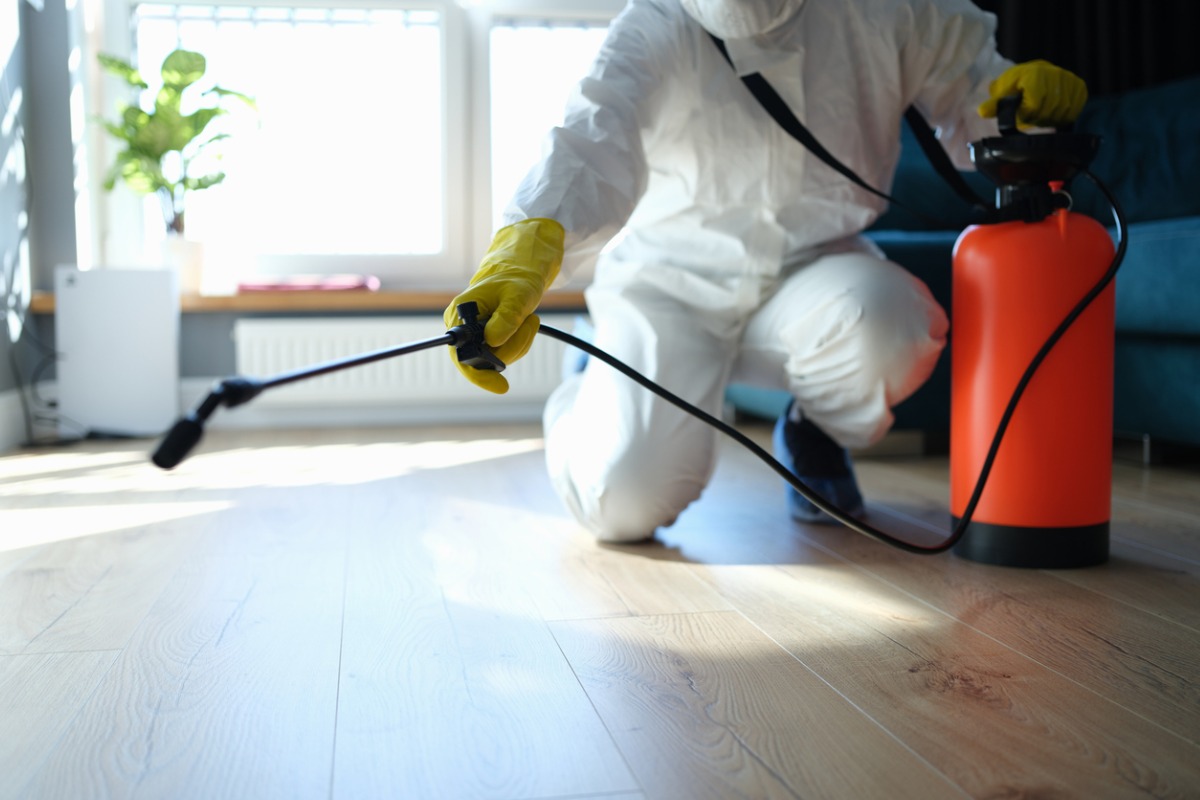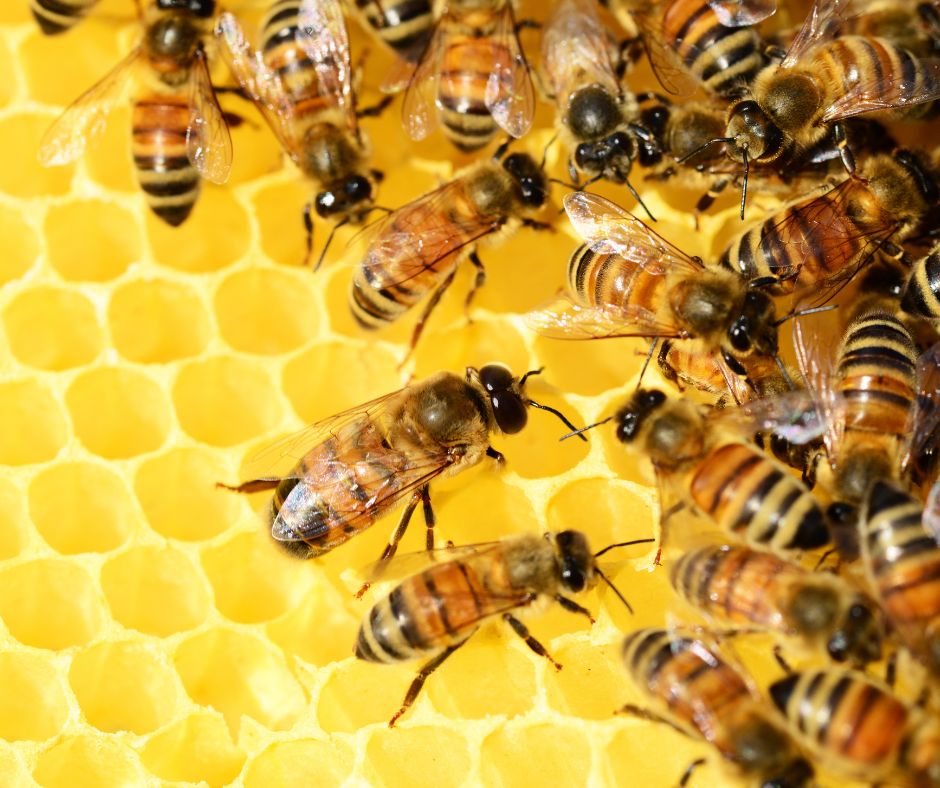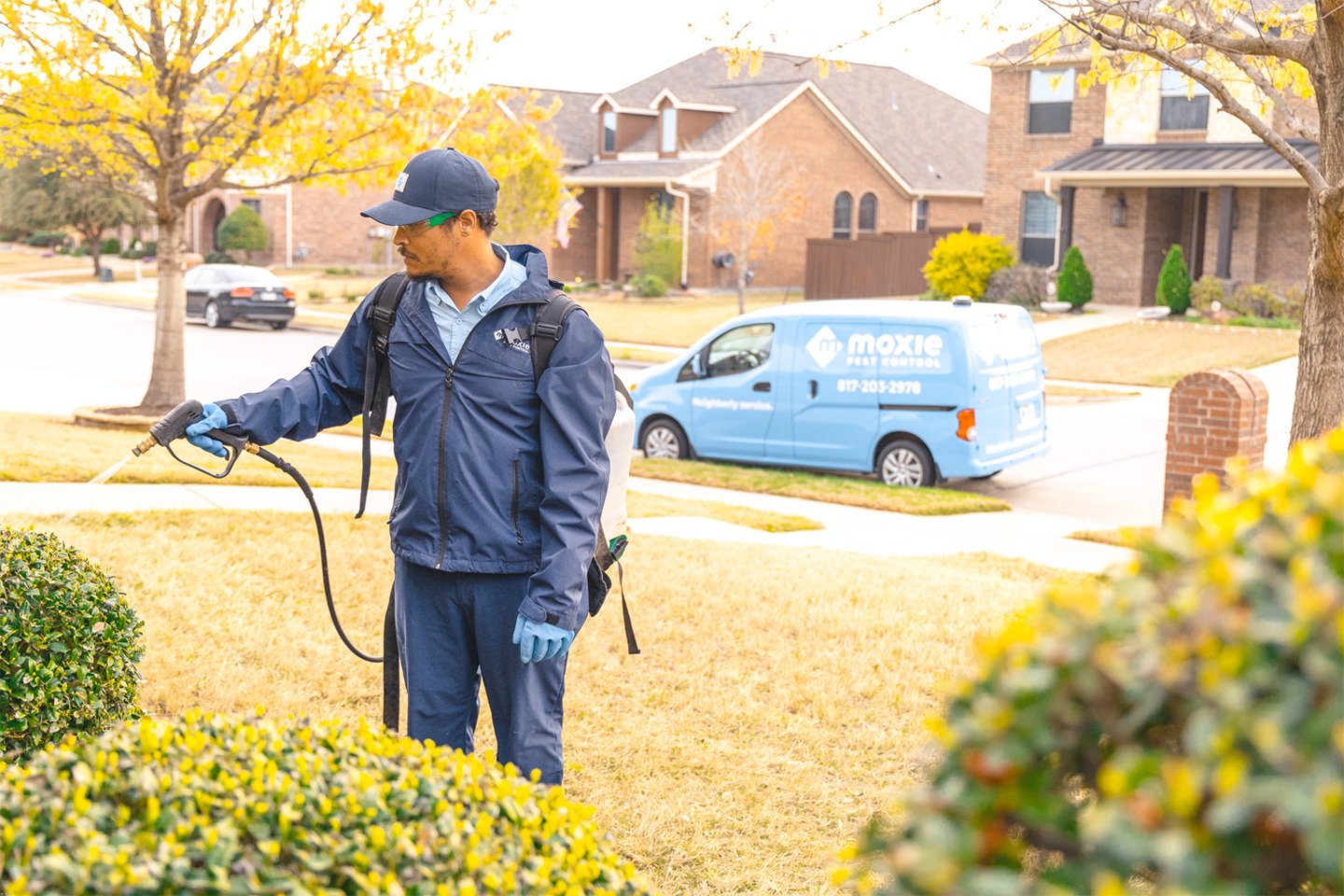Discover the Relevance of Insect Control in Maintaining a Healthy Atmosphere and Therapy Methods

The Function of Parasites in Ecological Communities
Pests, frequently viewed only as problems, play a multifaceted function in environments that is essential for preserving environmental equilibrium. They add considerably to numerous ecological procedures, including pollination, nutrition cycling, and bug control. For example, many insect types, such as butterflies and bees, are essential pollinators for a wide variety of plants, which in turn supports biodiversity and food production.
In addition, pests serve as prey for various killers, developing a critical link in food internet. This connection ensures the survival of different types and assists regulate populaces within communities (Termite treatment Port Charlotte). Decomposer bugs, such as certain beetles and fungis, are instrumental in breaking down organic matter, therefore enriching dirt and promoting nutrition recycling.
Alternatively, while pests can be beneficial, their overpopulation or intrusion into non-native settings may disrupt these ecological functions. This intricacy highlights the value of recognizing pest dynamics, as effective pest administration techniques need to take into consideration both their environmental duties and potential influence on human activities. Stabilizing pest presence while reducing harm is vital for maintaining the integrity of communities and guaranteeing agricultural productivity.
Health Risks Connected With Insects
The visibility of parasites in various atmospheres extends past their environmental roles, as they additionally posture substantial health and wellness threats to pets and humans. Several parasites, consisting of rodents, parasites, and pests, are service providers of illness that can have serious health effects. Rodents are understood to send hantavirus and leptospirosis, both of which can lead to severe breathing and kidney concerns, specifically.
Insects such as ticks and mosquitoes are notorious for spreading out vector-borne conditions like malaria, dengue fever, and Lyme disease. These ailments can lead to high morbidity and death prices, particularly in at risk populaces. Additionally, bugs like vermins and cockroaches can intensify allergies and asthma, adding to respiratory troubles in individuals, specifically those with pre-existing problems.
Moreover, the existence of parasites can cause mental stress and pain, influencing overall wellness. Contamination of food and surfaces by bug droppings and remains can cause foodborne diseases, highlighting the relevance of maintaining hygienic problems. As a result, recognizing the health and wellness threats connected with insects is crucial in recognizing the need of efficient bug management approaches to secure animal and human wellness.

Benefits of Efficient Bug Control
Efficient pest control is important for keeping a healthy and secure environment, as it consistently mitigates the countless dangers related to parasite infestations. One of the primary benefits of efficient bug monitoring is the reduction of carcinogen. Parasites such as rodents, roaches, and insects are vectors for conditions that can influence both humans and family pets. By controlling these populations, the chance of disease transmission is substantially lowered.
Furthermore, efficient parasite control safeguards residential property and frameworks from damage. Numerous parasites, like additional reading termites and carpenter ants, can cause comprehensive architectural damage that may require pricey repair services. By proactively handling these house owners, problems and businesses can safeguard their investments.
An additional substantial advantage is the improvement of total high quality of life. A pest-free setting contributes to mental health and minimizes anxiety connected with problems. Effective bug control cultivates a safer setting for animals and kids, guaranteeing that homes stay shelters cost-free from disease-causing microorganisms and harmful chemicals.
Usual Parasite Control Techniques

In the world of insect bee elimination monitoring, various strategies are employed to deal with invasions properly. These methods can be broadly classified right into three main methods: social, mechanical, and chemical controls.
Cultural control entails modifying techniques to reduce insect establishment, survival, and recreation. This may consist of plant turning, appropriate sanitation, and environment control, which collectively create a setting less for pest proliferation.
Mechanical control utilizes physical methods to remove insects (Termite treatment Port Charlotte). Techniques such as barriers, catches, and vacuums are frequently made use of to directly eliminate parasites from a location. This method is especially efficient for taking care of rats and insects without using harmful chemicals
Chemical control includes the application of chemicals to manage parasites. These substances can be classified into pesticides, herbicides, and fungicides, each targeting specific sorts of parasites. It is critical to make use of these chemicals deliberately, sticking to safety and security guidelines and laws to lessen prospective injury to non-target species and the setting.
Each bug control technique has its benefits and restrictions, and frequently, an incorporated technique combining numerous approaches yields the very best lead to preserving a pest-free atmosphere.
Lasting Insect Management Practices
Sustainable parasite management methods include a variety of strategies designed to decrease ecological impact while effectively controlling insect populaces. These techniques prioritize using eco-friendly approaches over chemical pesticides, consequently lowering the danger of damage to non-target types, consisting of advantageous insects, wild animals, and human beings.
Integrated Bug Administration (IPM) is a cornerstone of lasting techniques, integrating organic, cultural, mechanical, and chemical strategies you could try this out to manage bugs. Biological control involves presenting all-natural predators or parasites to subdue bug populaces. Social practices, such as crop turning and polyculture, disrupt pest life process and improve community strength.
Mechanical methods, such as obstacles or traps, can properly stop insect gain access to without chemical intervention. In addition, preserving healthy environments with correct soil monitoring, plant health and wellness, and biodiversity can normally alleviate parasite concerns.
Education and learning and understanding are important elements, encouraging communities and individuals to identify pest risks early and apply safety nets. Termite treatment Port Charlotte. By cultivating an all natural technique that balances pest control with ecological honesty, lasting parasite monitoring methods not only protect structures and plants yet also add to a healthier atmosphere for future generations
Conclusion

Comprehending the health and wellness threats connected with bugs is crucial in identifying the necessity of effective insect monitoring approaches to secure human and animal health and wellness.
Reliable pest control is crucial for preserving a healthy and safe setting, as it continually minimizes the many dangers connected with parasite infestations.Integrated Insect Management (IPM) is a foundation of lasting methods, incorporating organic, social, mechanical, and chemical tactics to handle bugs. By recognizing the duty of parasites, recognizing involved wellness threats, and utilizing varied therapy methods, a sustainable approach to pest monitoring can be accomplished. Integrated Pest Monitoring (IPM) highlights an alternative technique that mitigates injury to helpful microorganisms while effectively managing insect populations.